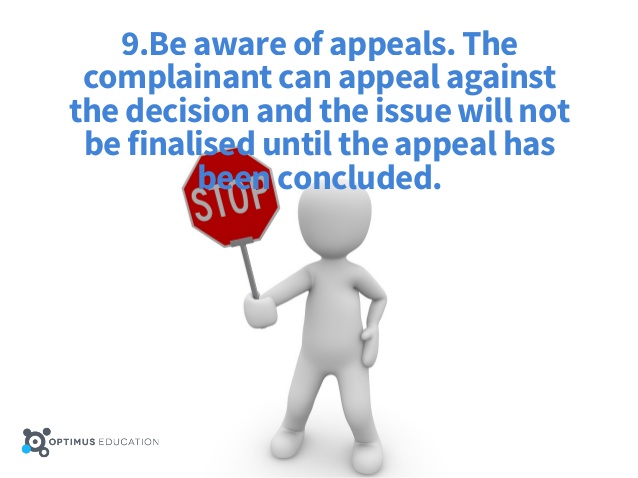Hopefully, as a licensee you’ve never had to deal with a complaint against your facility, but if you have been a licensee long enough the odds are that at some point you’ve had a complaint made against your facility. When a Licensing Program Analyst (LPA) comes to your facility to inform you that a complaint has been made against your facility, you probably get that feeling of a pit in your stomach. When you work hard and do your best to please your residents and their families while maintaining compliance only to learn that a complaint has been filed against your facility, it can be a very deflating experience.

Dealing with complaints can take up valuable time, cost you money, and be emotionally draining. When you’re in the midst of a complaint investigation, what you’re probably looking forward to most is getting it behind you as fast as possible and, most importantly, with a favorable result. If you get to the end of a complaint investigation with an “Inconclusive” or, better yet, an “Unfounded” result, you probably get that feeling that you can finally breathe a deep sigh of relief. Well, what if I told you that as licensees we had to live in a world where a complainant, which is the party that made the complaint, could file an appeal if they were dissatisfied with Community Care Licensing’s (CCL) investigation findings? Imagine getting that “Inconclusive” or “Unfounded” result and just as you’re in the midst of breathing that deep sigh of relief, you learn that the complainant has appealed your favorable investigation finding and that feeling of being able to breathe a deep sigh of relief has just reverted back to that feeling of having a pit in your stomach. Well, that was almost our reality as of January 1, 2016 had 6Beds not intervened to have AB 1387 amended prior to its passage.
The June 25, 2015 version of AB 1387 included a two-level complainant appeal process that could potentially extend the complaint investigation process by 120 business days. Keep in mind that I’m referring to 120 business days, which translates to a complainant appeal process that could last between five and six calendar months.
6Beds took decisive action when it learned of the proposed complainant appeal process in AB 1387. In addition to writing a comment letter to the office of AB 1387’s author, Assembly Member Kansen Chu, I testified on behalf of 6Beds before the Senate Human Services Committee on July 14, 2015 in order to voice 6Beds’ concerns regarding the proposed complainant appeal process. 6Beds’ part of the testimony begins at the 4:52 mark and the entire AB 1387 hearing is 11:31 long. However, I encourage you to watch the entire video in order to get full context.
California Advocates for Nursing Home Reform (CANHR) was the primary supporter of the complainant appeal process. CANHR is the same group that sponsored the RCFE Reform Act of 2014. 6Beds’ position on the version of AB 1387 that included the complainant appeal process was “oppose unless amended”. Not even the California Assisted Living Association (CALA), which represents many of the largest assisted living companies, opposed the version of the bill that included the complainant appeal process.
6Beds’ comment letter, testimony before the Senate Human Services Committee, and the aggressive advocacy of 6Beds’ lobbyists before and after the Senate Human Services Committee hearing played a significant role in the complainant appeal process being removed from the final version of AB 1387. Read AB 1387 – Complainant Appeal Process for the portion of the final version of AB 1387 compared to the June 25, 2015 version that shows in red strikethrough the removal of the complainant appeal process from the bill.
The entirety of the June 25, 2015 version of AB 1387 was not detrimental to RCFE licensees. In fact, the bill did contain important licensee appeal process reforms, which 6Beds strongly supported and even made improvements to that were incorporated into the final version of the bill. However, where others took the easy position of compromising to accept the complainant appeal process in exchange for a reformed licensee appeal process, 6Beds took the more aggressive, but calculated approach of advocating for a bill that contained licensee appeal reforms without introducing a new and cumbersome complainant appeal process.
In a future blog post, I’ll address the new licensee appeal process that the final version of AB 1387 gave effect to on January 1, 2016.